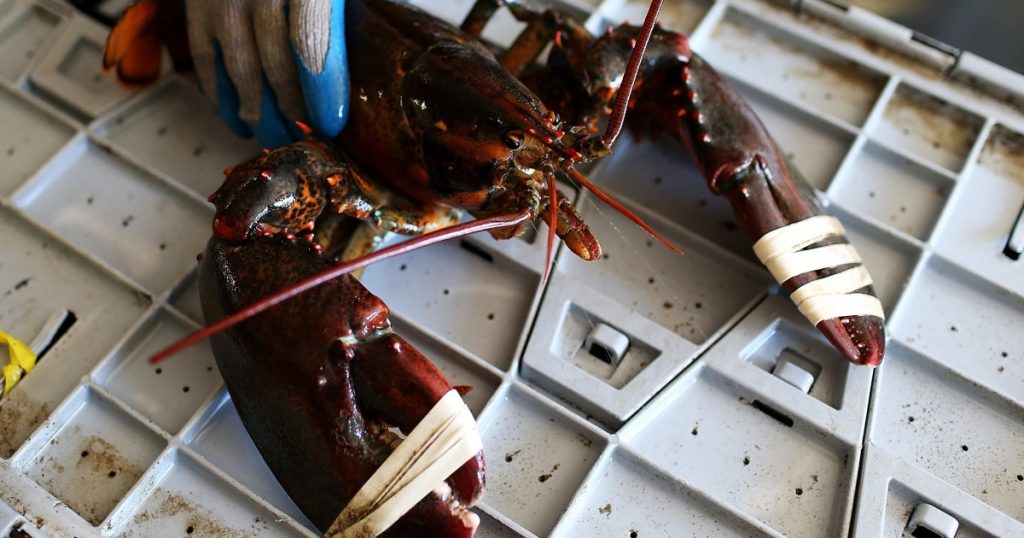The Maine lobster industry is facing a new challenge as fishing regulators are instituting stricter minimum size requirements for lobsters. While the change may seem small, at only 1/16th of an inch, it could have a significant impact on lobster fishermen who are already facing threats from climate change and new regulations aimed at protecting whales. The change has caused tension between fishermen and regulators, and has led to confusion about the implications for international trade in lobster.
Some fishermen are concerned that the new rules, which are set to take effect next summer, could impact their ability to fish and put them at a competitive disadvantage with Canada, which has more relaxed regulations. A decline in baby lobsters off Maine has been observed, leading regulators to anticipate a decline in the adult lobster population in the future. This decline has prompted the Atlantic States Marine Fisheries Commission to implement the minimum size change in order to protect the lobster population.
While some conservationists support the stricter regulations as a means of preventing overfishing and protecting lobsters from depletion, others in the lobster industry believe that the changes are unnecessary at this time. The changes do not apply to Canadian lobster fishing grounds, which already allow for the harvesting of smaller lobsters. Canadian authorities and trade groups are closely monitoring the situation in the U.S. and are considering their own responses.
The lobster industry in both the U.S. and Canada could be significantly impacted by the new regulations, with potential shifts in market access and prices. However, the impact on U.S. consumers remains uncertain. Prices for lobster have been down compared to recent years, but could be influenced by the size of the catch for the remainder of the year. Some scientists and industry experts support the minimum size change as a necessary measure to protect the long-term health and resilience of the lobster population.
The Maine Lobstermen’s Association has expressed opposition to the size changes, arguing that they are not needed at this time. Despite recent declines in lobster hauls compared to the 2010s, the industry maintains that current catch levels are still higher than previous decades. Additionally, the industry is dealing with regulatory uncertainty related to future regulations aimed at protecting whales. Democratic Congressman Jared Golden proposed an amendment to block the size changes, highlighting the ongoing debate between fishermen, regulators, and industry stakeholders.


